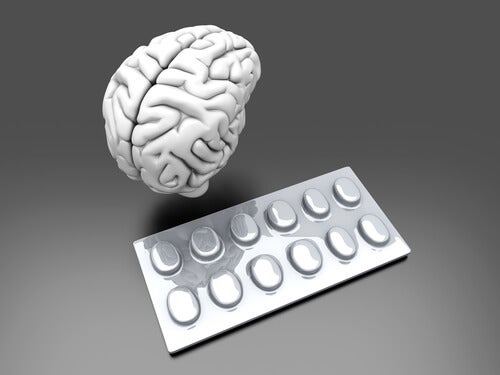Vortioxetine is a next-generation antidepressant with multimodal action. It was first approved in 2013.
It’s a novel antidepressant with a unique profile. That’s because it acts as a multimodal serotonergic agent. Its efficacy in major depressive disorder has been established in both short-term and long-term studies.
Furthermore, it’s able to modulate a wide range of neurotransmitters. For example, serotonin, dopamine, norepinephrine, histamine, glutamate, and GABA. Its side effects also differ from conventional antidepressants. In fact, it has low rates of the usual side effects of sexual dysfunction, weight gain, and cardiovascular disorders.
Major depressive disorder (MDD)
Major depressive disorder (MDD) affects the way people feel, think, and behave. Its main symptoms are persistent feelings of sadness and loss of interest in activities that the sufferer previously enjoyed (anhedonia).
However, MDD is often not recognized or treated. This can have tragic consequences. For example, suicide or impaired interpersonal relationships.
Regarding its etiology, there are multiple factors. Although at a general level, it’s been related to a combination of genetic, environmental, biological, and physiological factors.
Current estimates state that women are 70 percent more likely to experience MDD than men.
Men and women experience the symptoms of depression differently. For instance, women suffer more feelings of guilt, sadness, and worthlessness. On the other hand, men tend to be irritable, tired, and lose interest in activities that they previously enjoyed.
Drug options for MDD
There are more than 30 drug therapy options available for treating unipolar depression. These include selective serotonin reuptake inhibitors (SSRIs), tricyclic antidepressants (TCAs), or serotonin-norepinephrine reuptake inhibitors (SNRIs).
Other anti-depressants include bupropion, second-generation alpha antipsychotics, monoamine oxidase inhibitors (MAOIs), norepinephrine reuptake inhibitors, and tetracyclics.
The lack of response to available antidepressant treatments is one of the great challenges of psychiatry. As a matter of fact, up to one-third of patients with major depressive disorder (MDD) don’t respond adequately. Furthermore, residual cognitive symptoms are often seen, even in the remission stage.
Nevertheless, thanks to advances in the knowledge of the neural circuits involved in MDD, more theories are emerging to explain depression beyond the idea of serotonergic activity.
These new theories tend to center on the monoaminergic system. It includes the serotonergic, noradrenergic, and dopaminergic pathways, and is located in various areas of the brain. Indeed, its multiple interconnections are known to play an important role in mood disorders.
This more inclusive concept has motivated the search for drugs that modulate neurotransmitters involved in the regulation of the monoaminergic system. For instance, glutamate or γ-aminobutyric acid (GABA). It’s from this interest that vortioxetine has been developed.
Vortioxetine: multimodal action
Vortioxetine is an antidepressant with multimodal action, which gives it a unique profile. Its antidepressant effectiveness has been demonstrated in several studies.
Vortioxetine has a unique and complex mechanism of action. Like conventional selective serotonin reuptake inhibitors (SSRIs), it can increase serotonin levels by inhibiting serotonin transporters (SERTs). However, its action on the different subtypes of 5HT receptors gives it characteristic properties and has led it to be considered a multimodal antidepressant. Furthermore, its ability to modulate various neurotransmitters (serotonin, dopamine, norepinephrine, histamine, glutamate, and GABA) allows it to act on domains such as cognition.
On the other hand, its adverse effect profile is different from that of other conventional antidepressants. This is the case because it has low incidences of side-effects of sexual dysfunction, weight gain, and cardiovascular disorders.

The relationship between vortioxetine and cognition
According to certain preclinical and clinical studies, Vortioxetine is a good alternative in the treatment of neurocognitive deficits in MDD. It improves learning difficulties and prevents stress-induced learning deficits.
There’s a positive effect of vortioxetine on deficits in cognitive flexibility, one of the main cognitive symptoms in MDD. A positive effect on memory has also been observed, greater than with the drugs escitalopram or duloxetine.
Vortioxetine promotes neuroplasticity more rapidly than other SSRIs. In addition, in clinical studies, it’s been shown to have no negative effects on cognition.
Analyses indicate that this drug doesn’t appear to act on a specific cognitive domain, but rather on a wide variety of domains.
Vortioxetine has been shown to be an effective initial and maintenance treatment for major depressive disorder.
Vortioxetine appears to have a safer profile compared to other traditional antidepressants. However, nausea rates tended to be numerically higher in its trials. Nevertheless, with its efficacy and tolerability established in numerous clinical trials, vortioxetine can be considered an alternative to other antidepressants on the market.
The post Vortioxetine: A Next-Generation Antidepressant appeared first on Exploring your mind.



















Comments